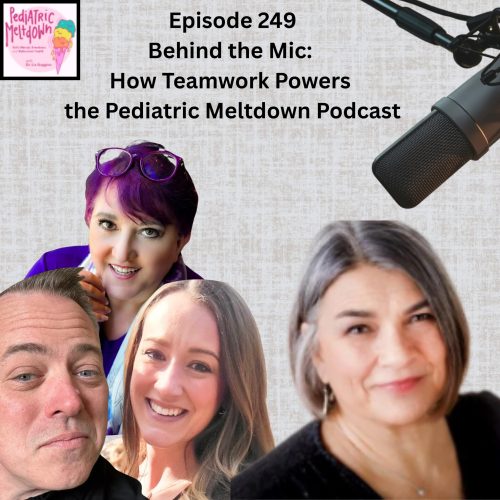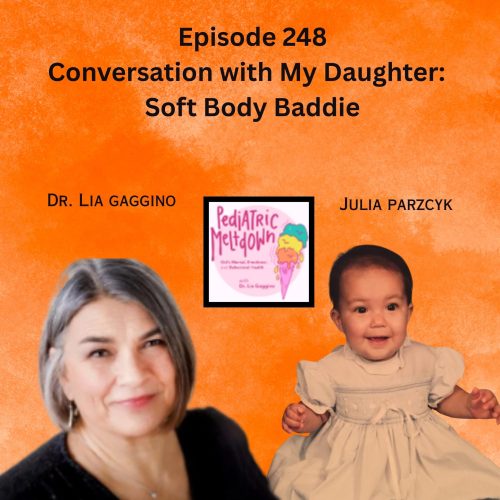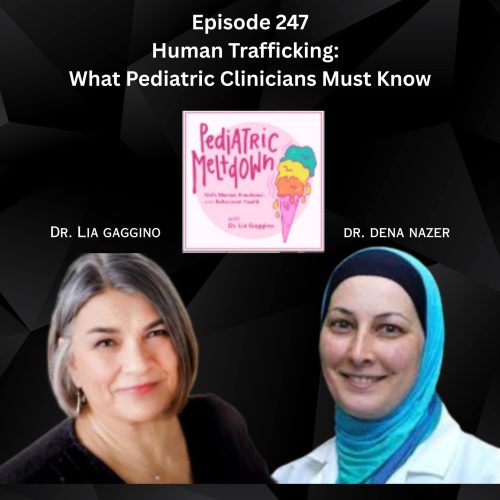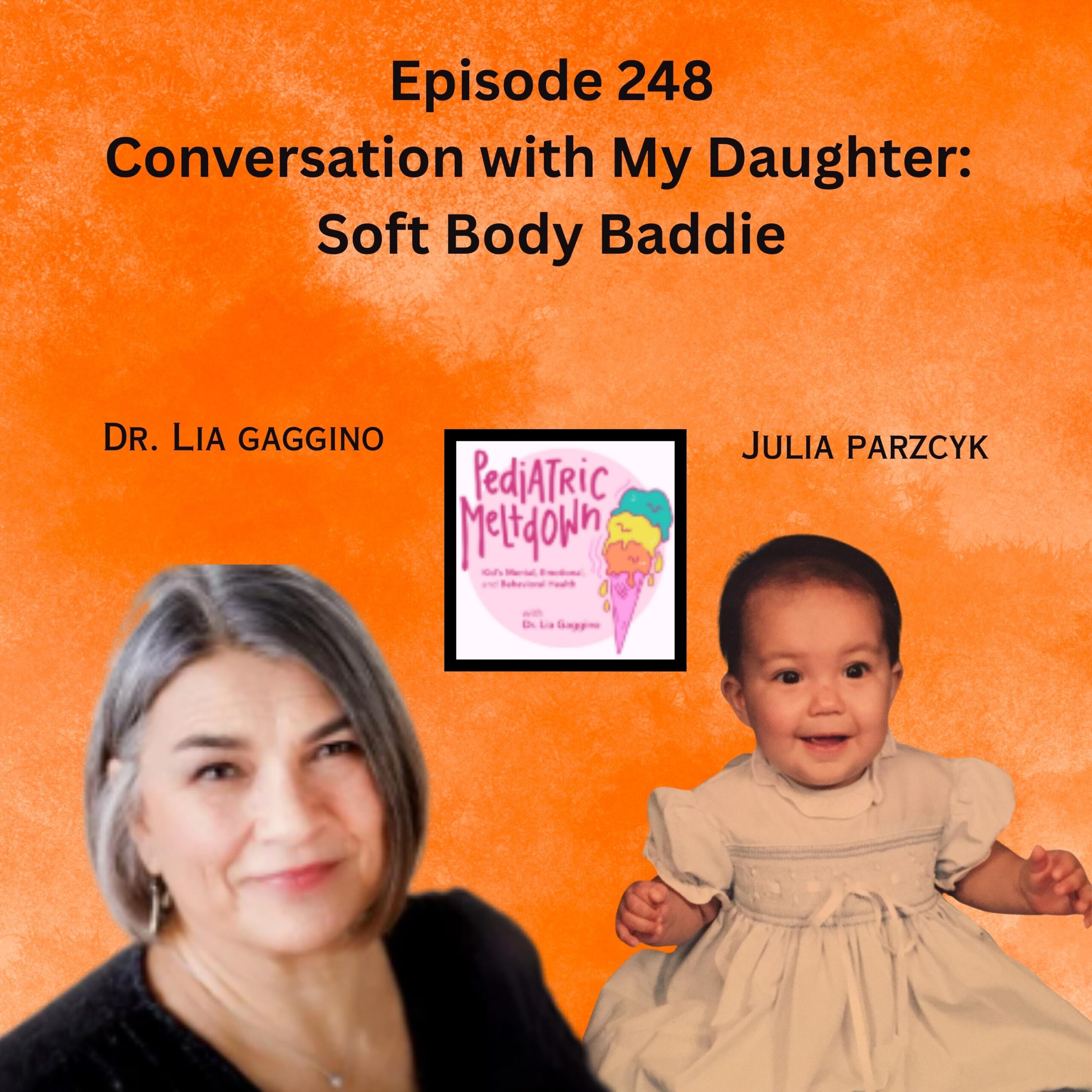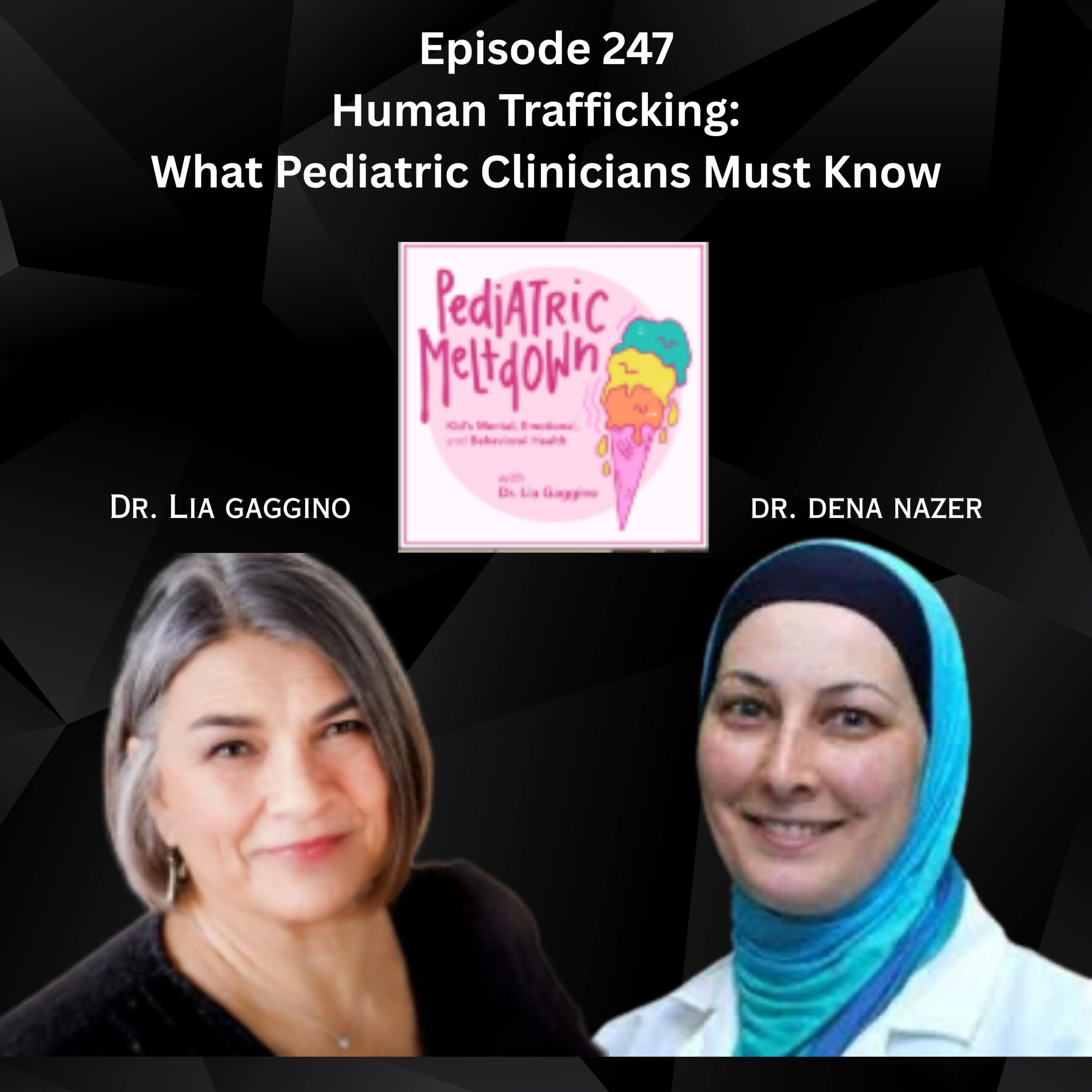Welcome to this week’s Pediatric Meltdown Podcast, where host Dr. Lia Gaggino invites guests Dr. Bruno Chumpatazi and Dr. Amanda Deacy to unravel the mysteries behind chronic symptoms in children. Together, they delve into the complexities of post infectious IBS, highlighting the multifaceted causes that contribute to these symptoms. From altered pain perception and processing to the potential role of inflammation, the experts leave no stone unturned. Discover how food sensitivities, the microbiome, and seasonal allergies come into play in shaping the experience of chronic symptoms. Join us as we explore the multidisciplinary treatment plans, focusing on non-pharmacological interventions like relaxation training and cognitive behavioral therapy. It’s time to gain a better understanding and listen, learn, and advocate for the multidisciplinary support and resources that these children and their families desperately need. Together, we can make a profound impact on their journey towards wellness.
[09:24 -21:07] Impact and Contributing Causes
- Disorders of gut-brain interactions (DGBI) affect 25% or more of school children worldwide.
- Early life events, such as being born prematurely or having a nasogastric tube placed, can increase the risk of developing DGBI.
- Sensitizing medical events, like inflammation or infection, can trigger or exacerbate DGBI symptoms.
- Psychosocial factors, including depression, anxiety, family stress, and abuse, can also contribute to the development and severity of DGBI symptoms.
[21:08 – 34:35] Preliminary testing for evaluating abdominal pain
- Acknowledge that the symptoms are real and not imagined
- Avoid dichotomizing symptoms as either physical or psychological
- Emphasize the biopsychosocial nature of the condition
- Avoid giving families the impression that medication is a quick fix
- Inform families that the treatment may take time and require attention and coping strategies
[34:36 – 48:43] Golden Rules in DGBI Treatment
- Acknowledge that the symptoms are real and not imagined
- Avoid dichotomizing symptoms as either physical or psychological
- Emphasize the biopsychosocial nature of the condition
- Avoid giving families the impression that medication is a quick fix
- Inform families that the treatment may take time and require attention and coping strategies
[48:44 – 01:02:02] Non-pharmacological interventions for pediatric abdominal pain
- Importance of attention and cognitive processing in pain management
- Gradual physical rehabilitation to improve strength and stamina
- Relaxation training as a mechanism to decrease overall nervous system activation
- Various techniques under relaxation training, including hypnotherapy and biofeedback training
- Educating adults (parents, teachers) on therapeutic approaches to influence the child’s environment
[1:02:03 – 01:08:11] Closing segment Takeaway
You can reach Dr. Bruno Chumpatazi
You can reach Dr. Amanda Deacy
Links to resources mentioned on the show
Hyams J et al. Functional Disorders: Children and Adolescents
Gastroenterol 2016; 150:1456-1468. PMID: 27144632
Thapar N et al. Paediatric functional abdominal pain disorders
Nat Rev Dis Primers 2020; 5:89. PMID: 33154368
Pediatric Abdominal Pain Program
Abdominal Pain for Community Providers
Other episodes you may like:
Ep 140 Eating Disorders: Avoidant/Restrictive Food Intake Disorder (ARFID)
Ep 115 Chronic Pain Syndromes: Assessment and Management
Eps 61-63 A 3 part series on Eating Disorders
Ep 26 The 3 B’s – Brain, Body, Behavior: Managing Anxiety
Key quotes for Twitter:
“I think what we bring to the table now, different than when I started, is kind of a refined conceptualization that I think really more accurately depicts why these conditions develop and why they are maintained.”… Dr. Amanda Deacy on a multidisciplinary approach in managing pediatric pain
“Unfortunately, these tend to be unregulated, in terms of, we don’t have an FDA stamp of approval saying that this is a legitimate product that’s well sourced, that has been processed and made very well, and that dosing that you’re seeing on that bottle or on that tea bag is appropriate…. I wish we could say that.”… Dr. Bruno Chumpatazi on Alternative Medicines and Safety
THANK YOU FOR YOUR SUPPORT!
Pediatric Meltdown was listed as a Top 20 Pediatric Podcast on FeedSpot.
If you’d like to connect with me, you can Tap the “What Are Your Thoughts” button at the top of the notes or you can find me on LinkedIn, Facebook, Instagram, and Twitter, or email me at gagginol@medicalbhs.com or gagginol@yahoo.com. To learn more about me visit https://www.medicalbhs.com/
LOVE WHAT YOU HEARD? Leave us a 5-star review so we can continue to provide you with great content. Share this episode and help people know more about children’s health and well-being.



